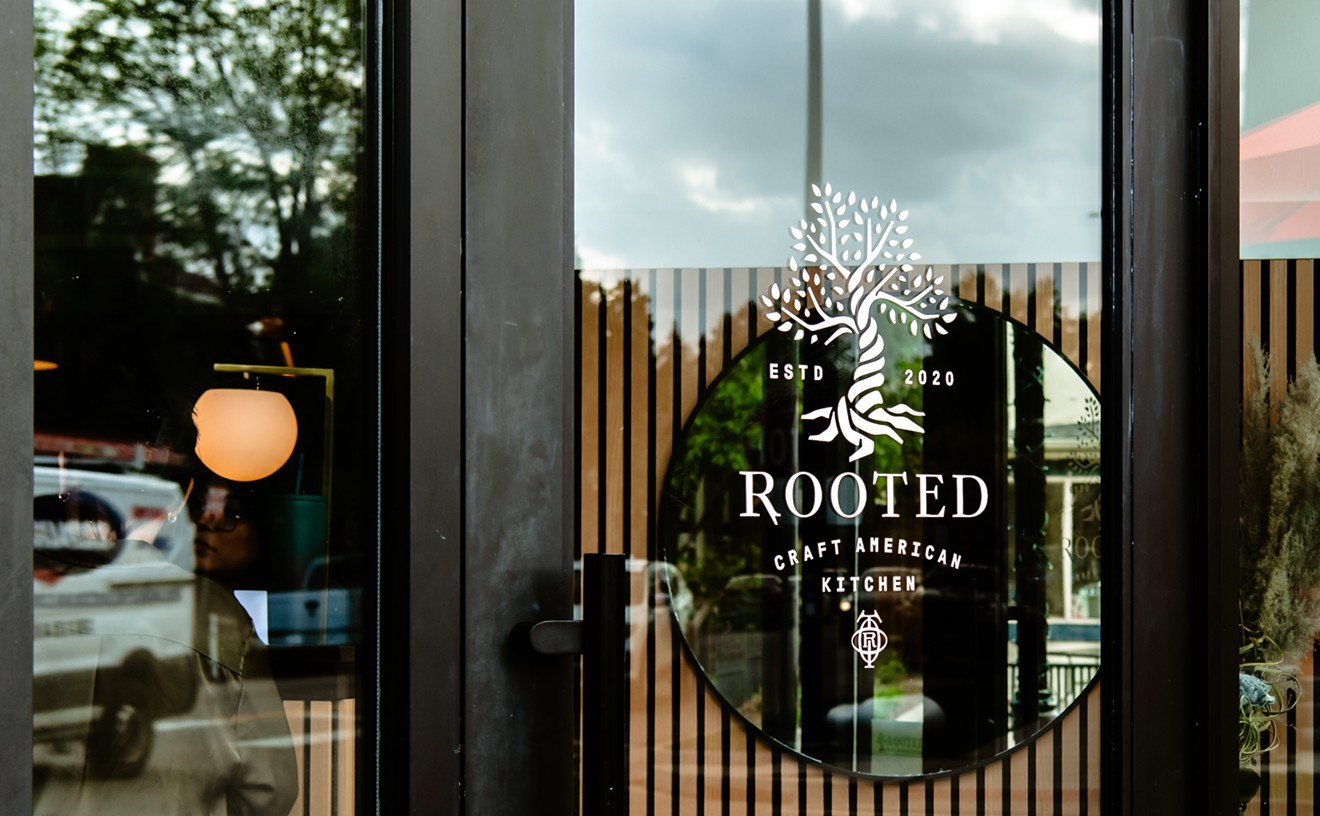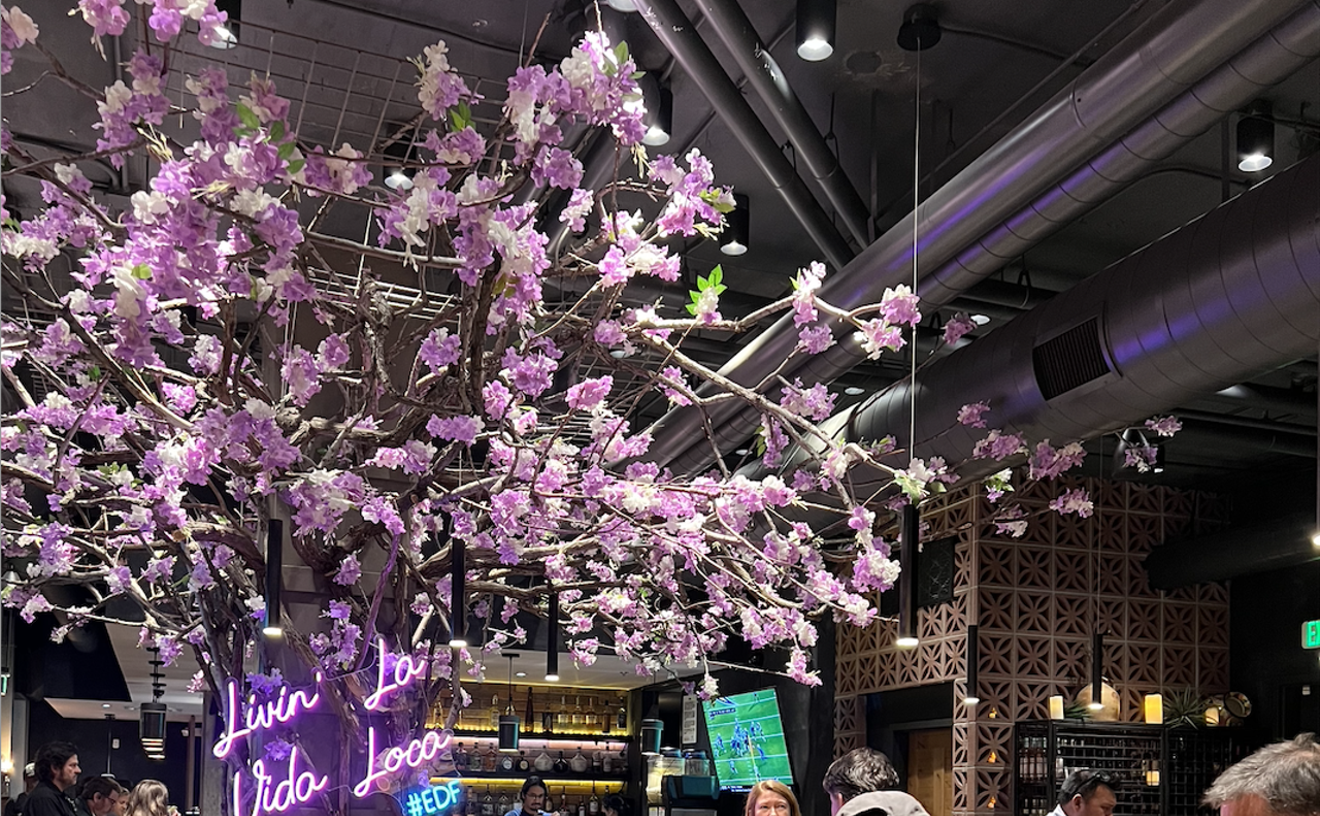We have a history, Oak at Fourteenth and I. It's not of the salacious, I-dated-someone-in-the-kitchen variety, but of the professional sort: I've reviewed the restaurant before. I did so at the now-defunct Denver Magazine in the weeks after Oak opened in November 2010, during what co-owners Bryan Dayton and Steven Redzikowski, both formerly of Frasca, now call phase one. This was before the comfortable yet refined New American restaurant would earn shout-outs from Food & Wine and the New York Times, before the apple-and-kale salad I loved would wow twelve editors at a recent event in New York ("I made enough for twenty, and the bowls came back empty," Redzikowski chuckles), before a major fire that destroyed all but a few beams shuttered the space for nine months and left everyone wondering if there would be a phase two.
Oak reopened in December 2011, and that second phase is now in full swing. And if I had any doubts about whether the fire had gutted the owners' initial vision along with the building, they were erased one warm spring night as I did something most people do as mindlessly as singing while driving: I buttered my bread.
If you know what to look for, butter is like CliffsNotes for a kitchen. Does it come in individual foil-wrapped squares? Is it salted? Is it straight from the fridge so it skitters in lumps and tears the bread when you try to spread it? Butter is a restaurant's version of what we do when no one is looking, a seemingly minor detail that reveals much about our character. Oak's butter is brought to room temperature, blended with olive oil and topped with Maldon sea salt. Light as whipped cream with a pleasant, salty crunch, it tells of a restaurant both modest and high-striving, not afraid to go to elaborate lengths to keep guests happy, but not so pretentious as to make them uncomfortable.
Redzikowski could do pretentious if he wanted to, given his years at big-name restaurants at home and on the coasts (Jean Georges in New York, Cyrus in Napa Valley and Aspen's Little Nell, to name a few). But from the beginning, Oak was designed as a neighborhood place, with award-winning craft cocktails, a menu tilted toward sharing, and a wood-burning oven that lends a rustic flavor to meats and vegetables and fills the restaurant with a cozy campfire smell.
Until another kind of fire altogether closed the place down. One of the most notable changes in the rebuilt space, other than a new party room, art for the previously unadorned walls and a few more seats at the chef's counter, is that sharing is now a bigger part of the ethos than before, and so the type on the menu is tinier. "We changed the font to small to fit [all the shared plates] in," Redzikowski laughs. Nearly double the size it used to be, the fifteen-item section remains the best way to experience a meal at Oak.
Some plates would be at home in a social-climber kind of place, like a spectacular hamachi crudo with mint and a tropical passion-fruit pop, or fresh calamari with Ibérico, a ham imported from Spain at $32 a pound. But Oak is out to please, not to impress, and it's the comfort foods — Redzikowski admits to a fondness for them — that have made the restaurant as much a part of Boulder as last week's race.
Comfort isn't a code word for simple, though, as that butter so deliciously demonstrates. Fried nibbles are made not from spuds, but from thin rounds of tempura-battered pickles dipped in tarragon-spiked green goddess aioli. Eggplant isn't battered and fried, but grilled in thick slices and slathered with romesco, a Spanish-style sauce I'd take over marinara any day, with a blend of piquillo peppers, chiles, almonds and raisins. A farm egg on toast sounds homespun until you realize it's poached, panko-coated and perched in all its fragile crispiness atop wild mushrooms and chicken confit. Ever-so-rich when the yolk mingles with the shredded, pan-crisped meat, it vies for the best egg I've ever had, on toast or otherwise.










